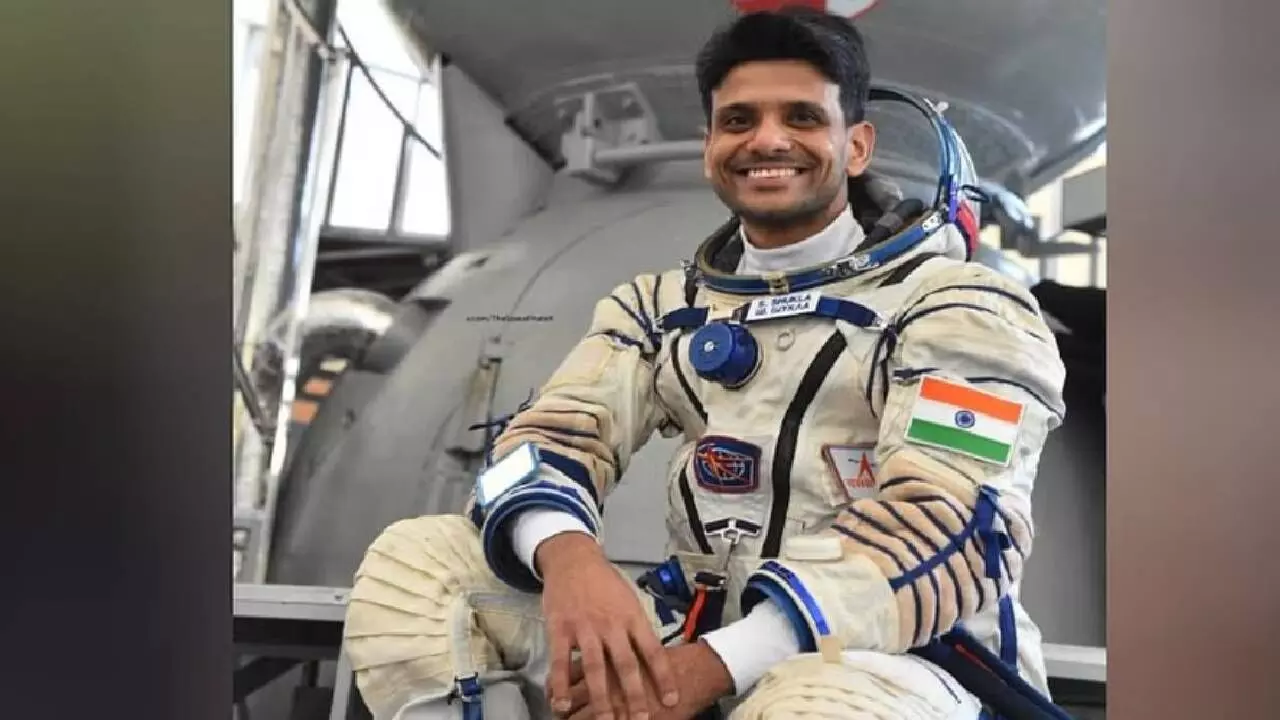Shubhanshu Shukla Becomes First Indian to Conduct ISS Research on Axiom Mission 4
Group Captain Shubhanshu Shukla makes history as the first Indian to perform scientific experiments aboard the ISS during Axiom Mission 4, focusing on muscle loss, glucose regulation, and microgravity’s impact on human health
image for illustrative purpose

Group Captain Shubhanshu Shukla of the Indian Air Force has made history as the first Indian citizen to conduct a scientific experiment aboard the International Space Station. Part of the Axiom‑4 mission launched on June 25, 2025, Shukla is piloting SpaceX’s Crew Dragon “Grace” and will spend 14 days on orbit.
Once onboard, Shukla initiated the Space Microalgae study—deploying algae sample bags and imaging them. This experiment investigates microgravity's effects on edible microalgae, potentially paving the way for sustainable space-based food systems.
He’s also collaborating in the Life Sciences Glovebox to study muscle atrophy (Myogenesis), assessing degradation pathways important for long-duration human missions. These efforts aim not only to protect astronauts on future deep‑space missions but could also inform treatments for muscle-wasting diseases on Earth.
The Axiom‑4 crew—comprised of Shukla, commander Peggy Whitson, and mission specialists from Poland and Hungary—is conducting a wide range of research on cancer cell behavior, plant growth, cerebral blood flow, and more.
India’s space program has celebrated this milestone, with Prime Minister Modi calling it a defining moment when he spoke with Shukla via video link from orbit: “Sky is never the limit … neither for you, nor me, nor for India.
Following its successful docking on June 26, this mission reinforces India’s space ambitions alongside global partners—positioning Shukla as a trailblazer in India’s human spaceflight, paving the way for the upcoming Gaganyaan mission.

